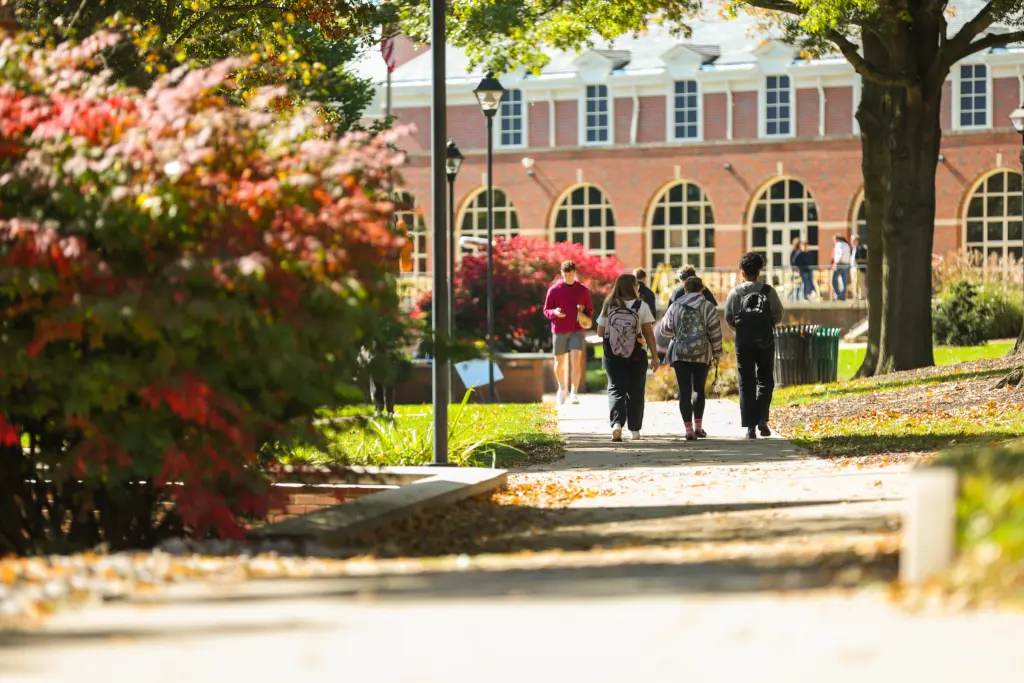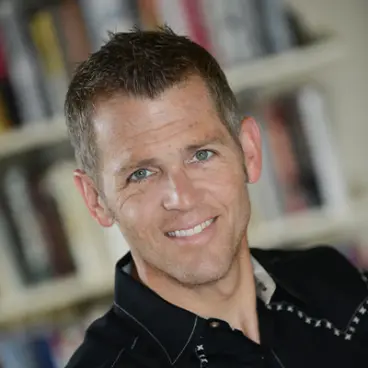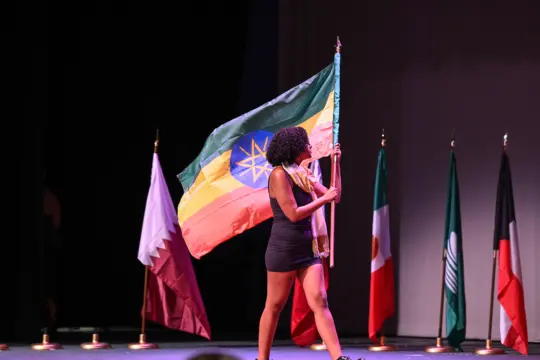History
Make no mistake, the classroom conversations might be cool, but the skills you learn will take you places.
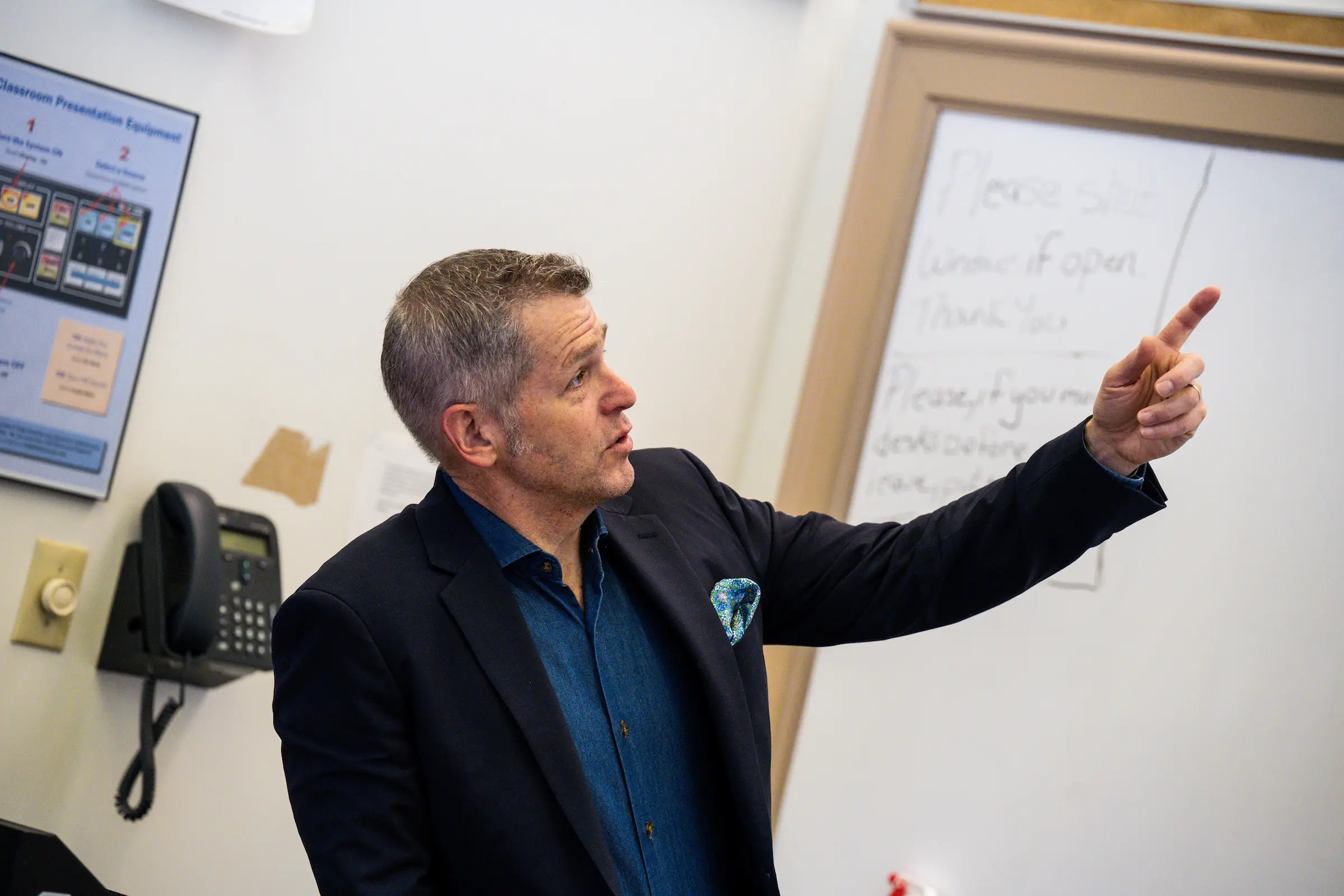
History Degree
Use your history degree to add your voice to conversations that change the world
You have a mind for the rise and fall of empires. You see that it’s difficult to understand today’s cultures and governments without examining the forces that shaped them. You cheer for the underdog. You know that only by looking back with wisdom can we make smart decisions to better our communities. Besides, you know the history of the human race makes a darn good story.
When you join your fellow history majors at Susquehanna University, you become a vibrant part of the longest-running and most compelling conversations. Work closely with funny, fascinating, and compassionate professors. Know what’s happening in the world and why. Study the powerful and the powerless in every corner of the past.
Classroom conversations might be interesting and engaging, but the skills you learn will take you to exciting places! You’ll prepare for work that’s rewarding and meaningful. You’ll learn how to think critically, analyze evidence and write with flair. You’ll gain the knowledge to work in government, policy, education, public history and law. Fascinating fellowships, internships and research opportunities will launch you into successful careers where there’s a demand for your skills and perspective.
drive innovation with a degree in history
Students can uncover the criminal underworld and experience unique courses at Susquehanna. A major in history offers hands-on research and course development opportunities, allowing students to delve into the past and shape the future of public history.
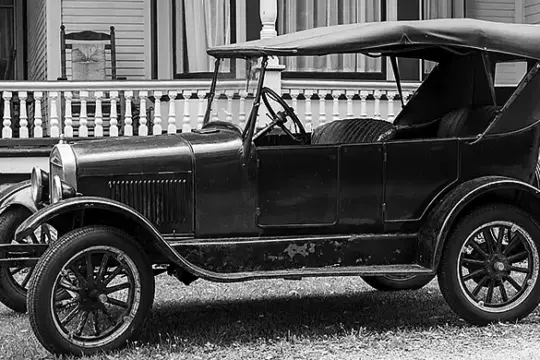
SUsquehanna By the Numbers
More Than Metrics
100%
of students complete original research with a faculty advisor
95%
of students study abroad
100%
of students present research at local, national or international conferences
90%
of students preparing to be teachers pass their praxis exam the first time
Explore Your Studies
Program Resources
Considers industrialization, immigration, domestic politics, foreign relations and changing definitions of citizenship in the United States since the late 19th century. 4 SH. CC: Historical Perspectives, Diversity Intensive.
A survey of United States history with African-American experiences as its centerpiece. By adopting cultural, economic, political, and social approaches to the past, the course emphasizes themes of identity, strategy, and agency. 4 SH. CC: Historical Perspectives, Diversity Intensive.
European history from about 800 to the middle of the 17th century. Pays particular attention to major epochs during this lengthy period-medieval, Renaissance, Reformation. 4 SH. CC: Historical Perspectives.
Modern Europe from the dawn of science and Enlightenment thought to the end of communism and after. Focuses on political, intellectual, cultural and social developments, showing the ways in which ideas shaped people’s daily lives. Pays special attention to the human impact of the modern state’s development, as well as industrialization, empire building, modernism, world war and genocide. 4 SH. CC: Historical Perspectives.
An introduction to the civilization of East Asia from earliest times to the 17th century, surveying major political, social and cultural developments in China, Japan and Korea. Special attention is given to the origins and the evolution of civilizations; the relationship between state, society, and religion; and the writing of history. The course provides students with a better understanding of different cultures, to awaken them to world developments and to encourage cross-cultural analysis and appreciation. 4 SH. CC: Historical Perspectives.
A survey course that introduces the foundation and development of modern East Asia from the 17th century to the present. It emphasizes the transformation of political and economic institutions, and the social and cultural trends of modern China, Japan, Korea and Vietnam. It studies how international diplomatic, commercial, military, religious and cultural relationships joined with internal processes to direct the development of East Asian societies. 4 SH. CC: Historical Perspectives.
Survey of key developments in early African history from the agricultural revolution to the advent of trade with Western Europe. This course covers the topics of technology, economy, politics, constructions of gender, and religious institutions between circa 16,000 B.C.E. up to 1400 C.E. 4 SH. CC: Historical Perspectives.
An examination of the processes of change that have led to modern political, economic, and social institutions in Africa. Topics include the analysis of the historical development of urbanization, state formation, the slave trade, monetary systems, and leisure culture. This course focuses on issues of continuity and change between 1400 and the present. The central question addressed is how have African communities viewed modernity and how have different people endeavored to create a modern Africa? 4 SH. CC: Historical Perspectives.
An examination of Latin America from pre-Columbian times to independence. Traces developments fundamental to the establishment of colonial rule, the formation of colonial society, and the origins of the independence movements in Spanish America and Brazil. Topics include contact period, the cultural and political assimilation and resistance of indigenous and African peoples, the role of the church, colonial government and economic systems in colonial organization. 4 SH. CC: Diversity Intensive, Historical Perspectives.
Study of Latin America from the era of independence to the present. Focuses on Latin America and the global economy, revolutions and their consequences, ethnic, cultural, and socio-economic diversity of the region, the relationship between the U. S. A. and Latin American nations, and changing politics of citizenship. 4 SH. CC: Diversity Intensive, Historical Perspectives.
This course explores the history of Africa through the lens of women and gender. Focusing on gender roles across the nineteenth and twentieth centuries, students will attempt to recover the voices of individuals often silenced. Students will consider power dynamics based on gender and study how women were active participants in the making of their own histories. Degrees of autonomy and dependence are scrutinized through themes that include access to land and property, slavery, colonization, and decolonization. 4 SH. CC: Historical Perspectives.
This course is an introduction to the field of public history, in which historians work beyond the classroom to reach multiple audiences. Students learn and apply best practices in such venues as museums, historical tours, heritage sites, “pop up” exhibits, and digital history. 4 semester hours. CC: Historical Perspectives
This course explores the history of buying, selling, and profit-seeking in the United States by emphasizing their social and political contexts. Students consider such topics as the business of European settlement, colonial exchange, free and enslaved labor, the economics of revolution, industrialization, recessions and depressions, consumerism, and the costs of the American Dream. CC: Historical Perspectives. 4 SH.
This course considers crime in the United States from the Revolutionary Era to the late twentieth century. The main concepts covered are crime as a social construct, crime and class, crime and race, cultural explanations for criminal motivation, and the politics and economics of incarceration. 4 SH. CC: Historical Perspectives.
How did Europeans take over and dominate the world starting in the mid 1800s, and what are the lasting economic implications of their control? This course considers these and other big questions of the modern world and helps students learn how to analyze and communicate better. 4 SH. Historical Perspectives
This course considers the Civil War in its economic, political, and cultural contexts. Students focus on the war as a human struggle with roots in racial, class, gender, and regional identities. The course also emphasizes historians’ debates about causes and consequences. 4 SH. CC: Historical Perspectives.
The course considers the history of medicine from the prehistoric period to the present. Two key components of the course are the analysis of primary and secondary source evidence and the significance of narrative to the history of medicine. Prior knowledge of the history of medicine is not required. 4 SH. CC: Historical Perspectives.
This course examines the connections between the history of labor and leisure in the United States from the early nineteenth century to the late twentieth century. Particular emphasis is placed on social and cultural analysis of labor and leisure systems. Students read several historical case studies and synthesize course material in an original research project or a topic of their choosing. 4 SH.
This course studies the phenomenon of polar exploration between 1820 and 1920. It presents journeys of “discovery” as adventure, science, and imperialism. Students read explorers’ firsthand accounts and historians’ analyses to place Arctic and Antarctic journeys in scientific, political, and cultural contexts. The course ends by asking students to apply the lessons of polar expeditions to modern forms of extreme travel. 4 SH. CC: Historical Perspectives.
This course will broadly focus on the intersection of social, political, economic, and cultural developments in the making of modern Cuba. While much of the course will focus on the nineteenth and twentieth centuries, we will briefly examine the colonial period to provide historical context. A significant part of the course will also examine major historical moments that will situate the 1959 Cuban R/revolution in proper historical context and the ways different people envisioned their revolution. The R/revolution reshaped the island, the lives of its people and its institutions in fundamental ways. It also had a significant impact in regional and global contexts. While the course will try to follow a chronological order, it will also interrogate the conventional and official narratives of the region and present a range of actors and their contributions in thematic ways. Within broader historical moments, we will explore the range of processes and experiences that Cuban people shaped and were shaped by. 4 SH. CC: Diversity Intensive, Historical Perspectives.
A study of the research methods employed by historians: searching for sources with electronic and published retrieval systems, annotated bibliographies, and methods of citation. A consideration of epistemological issues, such as fact, truth, inference and synthesis. Completion of a historiographical essay, a short research project and other writing in order to build and refine skills. History Methods is a critical course in the professional development of historians; therefore, the intended audience is history majors and minors. Prerequisite: 100-level history course. 4 SH. CC: Ethics Intensive, Writing Intensive.
Studies the changing group setting for individual Americans, including family, community, class, and race/ethnicity, with a dual focus on popular culture and the process of industrialization/urbanization. Also examines historians’ models of social change. 4 SH.
This course examines the twentieth-century movements of African Americans to secure legal, social, and economic equality in the United States. Course readings and assignments focus on the structure of social movements, including their political, legal, and identity-based aspects, and specific case studies since the 1910s. The course also considers the nature of African-American agency and its limitations over time. 4 SH. CC: Diversity Intensive.
This course examines United States history through the lens of ethnic and racial interplay. Students consider the experiences of a diverse set of historical actors, emphasizing shifting definitions of national identity, citizenship, and opportunity in America. 4 SH. CC: Diversity Intensive.
An examination of the history and government of Pennsylvania. In addition to analyzing political developments and the structure of the state constitution, students consider the experiences of a diverse set of historical actors who co-existed from the colonial period to the late 20th century. The course emphasizes the ways in which these groups interacted, as well as the means by which individuals made sense of such widespread changes as industrialization, demographic shifts and urbanization. Students may not receive credit for both HIST-322 and HIST-324. 4 SH.
An analysis of the history of American medicine from the colonial period to today. In addition to studying professional medical practice, the class investigates the following topics: Native American medicine, enslaved healers, alternative medical practices, gender and medicine, race and medicine, class and medicine, and disease. Using both primary and secondary sources, students will analyze several important questions. What is medicine? What is disease? How did race, gender, and class affect American medical care? How has medicine changed or stayed the same over time? What is unique about American medicine? Prior knowledge of medicine or American history is not required. 4 SH. CC: Diversity Intensive.
This course examines Pennsylvania history by considering how the state’s past can be conveyed via diverse media for multiple audiences. Students analyze the political and social history of the colonial, early republic, and industrial eras while considering the experiences of a diverse set of historical actors who co-existed in what is now Pennsylvania. The course features research projects that move beyond the traditional paper format and take the form of museum exhibits, walking tours, and interactive digital media. Students may not receive credit for both HIST-324 and HIST-322. Prerequisite: Sophomore standing. 4 SH. CC: Interdisciplinary.
Focuses on the social, economic, and intellectual changes and developments during the time of enormous creativity and transition from the ninth to the 14th centuries. Examines the social and intellectual synthesis of the medieval period as an essential link between the classical and modern worlds. 4 SH.
Examines the origins, implementation and consequences of the Nazi program of mass murder over the course of the 20th century. Students study various primary and secondary sources of the Holocaust and consider the lasting impact of how we represent and remember these events. Same as JWST-338. 4 SH.
This course traces the history of American women from the seventeenth through the twenty-first centuries. It considers the history of American women in relation to gender, race, ethnicity, class, sexual orientation, and religion. Same as WGST-370. 4 SH.
This interdisciplinary course unites film studies and history as a way to understand two things: the ways that film functions as history and the ways we use film to consider history. Using films therefore as primary and secondary sources, it will analyze one epoch in detail. Students will use the tools of the historian to study film and the tools of the film scholar to analyze film’s function in shaping perspectives on history. Prerequisites: Sophomore standing and either one course in history or one course in film. 4 SH. CC: Interdisciplinary.
Merging the study of music and history, this interdisciplinary class offers a unique way to understand people’s lives in Europe and the United States in the 20th century. The focus on popular music, in particular, looks at recorded music, which helps minimize differences in students’ abilities to read and analyze music. Prerequisites: Sophomore standing and either a 100-level history or 100-level music course (ideally both), or instructor’s permission. 4 SH. CC: Interdisciplinary.
This seminar traces the history of the Enlightenment and French Revolution from a comparative perspective. Using and analyzing secondary and primary sources, the class will explore various themes related to the Enlightenment including the importance of science, the role women played, the rise of print culture, and the impact of the philosophes. In the second half of the semester, the class will turn its attention to the French Revolution, revolution in the French colonies, and how Americans viewed the Revolution. 4 SH. CC: Diversity.
Topics vary according to instructor. Recent topics included film and history, African diaspora, intellectual history of Europe, Islam in Africa, Indian Ocean history, Latin American revolutions, American women, and global migrations. 4 SH. CC: Diversity when the topic is Asian American History: 1850-Present.
Collective work that bridges the courses History Methods and Seminar in History and helps students construct their senior thesis topic. Also emphasizes editing, publishing, Web work and attention to career choices. Prerequisite: HIST-300 or instructor’s permission. 3-4 SH.
The capstone course that brings together students’ work in various classes, employing especially their research, analytical, interpretive, communication, and writing skills. Students create a substantial research project in conjunction with a faculty member and present their work publicly. Required for history majors. Prerequisite: HIST-300 or instructor’s permission. 4 SH. Capstone. CC: Writing Intensive.
Supervised work in fields related to history including museum work, publishing and editing, historic site surveys and other activities in public history. Not for Central Curriculum credit. Variable credit up to 8 SH.
Detailed exploration of a selected historical period, topic or problem under a faculty member’s direction. Involves either a reading program or a major research paper. Open to all majors. Prerequisite: Department permission. Variable credit.
Writing a thesis under the personal supervision of a department member. 4 SH.
When you enroll at Susquehanna, you’ll be paired with an advisor and application tool to guide you in your course planning and scheduling. The following is an excerpt from the complete course catalog. Enrolled students follow the requirements of the course catalog for the academic year in which they declare each major and/or minor, consult with their advisor(s).
History Studies
Students of history learn to read, analyze, and express themselves well. They study the past to learn from it and to prepare for a variety of careers. History majors focus on subjects, regions, and eras that interest them, and they graduate with a broad, international perspective on history. The major is flexible. It works well with other majors and minors and is particularly compatible with a semester abroad.
Learning Goals:
- History Majors will, in their first three semesters, learn to articulate the value of their discipline, build relationships on and off campus, and grow as students.
- History Majors will explore various career options.
- History Majors will demonstrate the connection between their GO experience and their major.
- History Majors will research, write, and present a senior research project following professional guidelines.
Major in History
Requirements for the History major reflect the commitment to history as a way of knowing and thinking about the world.
2 Geographical Surveys at the 100-level that focus larger civilizations and longer timeframes. These courses nevertheless teach students to think like historians and develop their analytical and communication skills.
3 Specialized Thematic Surveys at the 200-level that dig deeper into a particular place or theme. Like the 100-level courses, these classes emphasize analytical and communication skills.
4 Upper-Division Courses at the 300-level, one of which must be in non-U.S. or -European history. These classes focus on more specific topics in a specific area or smaller thematic framework and ask students to compare historical material and the arguments of other historians in order to craft their own conclusions about the past.
5 Majors Courses that represent the “backbone” of the History Major:
- History Methods, a methodology course taken in the sophomore year, that teaches students the specific skills of the historian. This class then helps students learn to explain their analyses better in verbal and written form, with an eye toward the senior thesis.
- Collective Inquiry in History, taken in the junior year, continues to teach students the skills of the historian and prepares them for their senior thesis.
- Finally, in Senior Seminar, majors carry out detailed research on a topic of their choice and work one-on-one with a faculty advisor to create a capstone project.
- In all three of these courses for majors, students spend time preparing for careers (creating resumes, interviewing, exploring options) and learning to explain the value of their history major.
Total: 40 semester hours. Students must maintain a 2.00 GPA in their major courses.
Transfer, AP, or study abroad classes may apply to the major.
Honors
Students may earn departmental honors by obtaining at least a 3.50 overall GPA and completing a senior research project deemed outstanding by members of the department.
Teacher Certification
Secondary Teaching Certification Coursework required by the state of Pennsylvania for admission to the teacher certification program includes successful completion of FYSE-100 or equivalent course (having learning goals related to English composition), at least 3 semester hours in British or American literature, at least 6 semester hours of mathematics coursework (or other courses which satisfy the Central Curriculum Analytical Thought requirement) and at least one 40-hour externship.
Education course requirements for secondary education are EDUC-101 Introduction to Education and Society, EDUC-250 Educational Psychology, EDUC-260 Introduction to Special Education, EDUC-270 Instruction of Exceptional Students, EDUC-330 Technology in Education, EDUC-350 English Language Learners: Theory and Instruction, EDUC-380 Instructional Design, EDUC- 479 Principles of Learning and Teaching in Secondary Education, EDUC-483 Differentiated Instruction and Classroom Management in Secondary Education, and the EDUC-500 Student Teaching package (EDUC-501, EDUC-502, EDUC-503 and EDUC-600).
In addition to completing the history major and the courses listed above, secondary education history students must complete certification in either social studies or citizenship. The requirements for certification in social studies are EDUC-425 Methods of Curriculum Instruction and Assessment in Teaching Social Studies, SOCI-101 Principles of Sociology, ANTH-162 Introduction to Anthropology, ECON-105 Elements of Economics, POLI-111 American Government and Politics, POLI-121 Comparative Government and Politics, PSYC-101 Principles of Psychology, HIST-322 Pennsylvania History or HIST-324 Pennsylvania’s Pasts and Their Publics, one course in U.S. history (HIST-111, HIST-112 or HIST-115), one course in European history (HIST-131 or HIST-132) and one course in non-Western history (HIST-151, HIST-152, HIST-171, HIST-172, HIST-180 or HIST-181). The requirements for certification in citizenship are EDUC-427 Methods of Curriculum, Instruction, and Assessment in Teaching Citizenship, ANTH-162 Introduction to Anthropology, ECON-105 Elements of Economics, POLI-111 American Government and Politics, POLI-121 Comparative Government and Politics, HIST-322 Pennsylvania History or HIST-324 Pennsylvania’s Pasts and Their Publics, one course in U.S. history (HIST-111, HIST-112 or HIST-115), one course in European history (HIST-131 or HIST-132), and one course in non-Western history (HIST-151, HIST-152, HIST-171, HIST-172, HIST-180 or HIST-181).
When you enroll at Susquehanna, you’ll be paired with an advisor and application tool to guide you in your course planning and scheduling. The following is an excerpt from the complete course catalog. Enrolled students follow the requirements of the course catalog for the academic year in which they declare each major and/or minor and consult with their advisor(s).
Minor in History
The minor in history is designed to enhance non-majors’ interest in history; it consists of 20 hours or five classes. Students take two Geographic Based Surveys (100-level) courses from different geographical areas, one 200- level Specialized Thematic Survey course and two 300-level courses of their choice. Students must earn a grade of at least C- in courses for the minor. Transfer, AP or study abroad classes may apply to the minor.
Recent Employers
Beyond Susquehanna
Where Passion Meets Purpose
Straight from the Nest


“My favorite class at Susquehanna was my first-year seminar, Intro to Historical Stories. It was very hands-on, allowing me to experience local culture through the community and activities.”
— Jack Thon ’26
“I find the professors here to be very understanding and supportive. In challenging times, my professors have been remarkably open and communicative, providing the necessary support and flexibility to navigate personal matters. This assistance has directly contributed to my academic success in their courses.”
— Audrey McHugh ’27
Susquehanna is an internship matchmaker
ROTC candidate Preston Isom ’23 was thrilled when he landed an internship with the Fort Sill National Landmark and Museum and the U.S. Army Artillery Museum in Oklahoma. He says, “I’m interested in making history approachable to a wide audience, and museums are the premier way to do so.” Nearly all Susquehanna students complete internships, and the university supports them in every way.
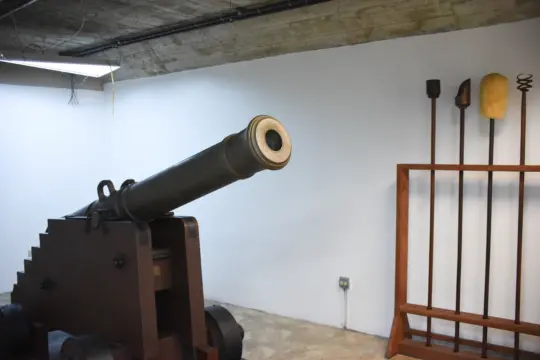
Meet the Faculty
TAKE A VIRTUAL TOUR
Launch ExperienceYOU MAY ALSO BE INTERESTED IN
See the full list of related programs on the School of Humanities page.
Have Questions?
Contact Us
Start your journey.
